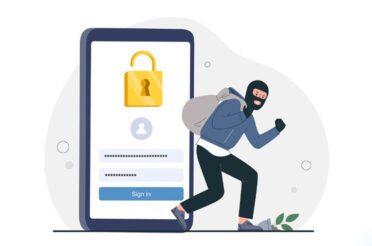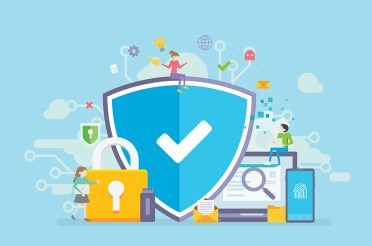Smaller organisations, including not-for-profits, are at a higher risk of falling victim to cyberattacks primarily due to their challenges to allocate what may be limited resources to strengthen their cybersecurity. This vulnerability is further compounded by the fact that some individuals harbour motivations against specific entities, particularly not-for-profits with a social service cause, making them even more susceptible to malicious activities.
The challenge of embracing a cybersecurity program without significant resources might make it unappealing. However, measures exist that can be taken without the expenditure of substantial resources. These measures can be undertaken through the cooperation of an organisation’s staff along with promoting core IT awareness.
Here are some measures that not-for-profits can take to increase their cybersecurity:
- Keep Security And Software Up To Date
By using outdated software, organisations create an opportunity for hackers to exploit vulnerabilities. This opportunity can be mitigated by updating software and operating systems and swiftly implementing security fixes which will improve cyber-defences against potential attacks. Additionally, maintaining up-to-date software contributes to optimal hardware performance, further enhancing security measures.
- Strengthen Passwords
Organisations must adopt a robust password policy that embraces security. Complex and randomly generated passwords should be employed by all staff, and these passwords should be exclusive to the organisation, and not utilised for other websites. Regular password changes are also encouraged, promoting further increased protection.
To facilitate the strengthening and management of passwords effectively, it is recommended that staff utilise a password manager. Using a password manager, staff can generate and store complex passwords securely, making it easier for them to access their credentials without compromising on security.
- Implement Multi-Factor Authentication
While a strong password is important, it should not be a stand-alone measure. The adoption of multi-factor authentication (MFA) throughout an organisation should be considered. MFA serves as an additional layer of defence, as it requires users to confirm their identity by approving the login through a secondary device, such as a mobile phone.
For increased security, this authentication process should be facilitated through a dedicated authenticator application. While using SMS messages for MFA is better than having no additional security at all, this method is more susceptible to interference compared to the protection offered by a dedicated authenticator app.
By utilising a combination of strong passwords and multi-factor authentication, organisations can increase their defences against potential threats and unauthorised access attempts.
- Prioritise The Regular Backup Of Data
Backing up data does not guarantee immunity from cyberattacks, but it does significantly improve an organisation’s resilience if it does suffer from such an incident.
To increase the effectiveness of a backup, it is recommended that it takes place through a secure off-site location. This reduces the risk of an unforeseen disaster affecting the primary storage location.
By embracing regular data backups, not-for-profit organisations can mitigate the impact of a data breach if it were to happen, and recover more quickly from an adverse event, while safeguarding their information and operations.
- Be Alert For Potential Threats
Maintaining constant vigilance is crucial to detect and address any suspicious activity before it causes any damage. This involves monitoring networks, servers, websites, and social media profiles. The objective is to proactively identify a potential threat before it can cause any damage or to minimise damage, should an attacker break through cyber defences.
- Encrypt Sensitive Information
The reality of cybersecurity is that breaches may occur despite the implementation of robust protections. Therefore, it is important to encrypt personal and private data to safeguard it in the event of a breach. Encryption ensures that even if sensitive information is accessed, unauthorised individuals cannot decipher its contents.
Applying encryption to data at rest, along with transmitted information, is recommended, and the use of encrypted channels by staff should be encouraged. To enhance security, utilise platforms that offer default encryption, as this will provide an additional layer of protection against threats and unauthorised access.
By adopting encryption, organisations can reinforce their security and reduce the risk of breaches that will compromise their information.
- Limit Access Through Permissions Granted
Granting unrestricted access to an organisation’s data may seem convenient, but it also introduces a significant vulnerability. A recommended approach is to deny access to information unless a person has a legitimate need to access it, and if a person departs an organisation or no longer requires access, their permissions should be adjusted accordingly.
This attitude toward access should be encouraged throughout an organisation, extending to leadership positions. By implementing strict access permissions, the risk of a data breach is reduced, and it ensures that information is protected and only accessible to authorised personnel.
- Document Procedures And Promote continuous Staff Development
For cybersecurity practices to be effective, everyone in an organisation must leverage them.
The assumption that staff members will embrace and undertake good cybersecurity practices should be avoided, and the provision of regular training sessions will reinforce awareness and knowledge, and as cybersecurity practices evolve, staff can be kept up to date with the latest protocols.
Update And Enhance Your Cybersecurity Today
While not-for-profits might believe that they are at a lesser risk, the nature of their operations does make them attractive targets to cybercriminals. For an organisation, the sooner on and offline security is introduced and embraced, the better for its overall safety and resilience.
If your organisation requires assistance with your on and offline cybersecurity, please contact Aryon today.








